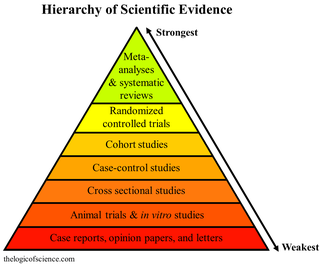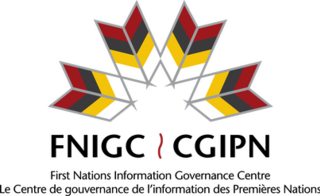Related Research Articles
In developmental psychology and moral, political, and bioethical philosophy, autonomy is the capacity to make an informed, uncoerced decision. Autonomous organizations or institutions are independent or self-governing. Autonomy can also be defined from a human resources perspective, where it denotes a level of discretion granted to an employee in his or her work. In such cases, autonomy is known to generally increase job satisfaction. Self-actualized individuals are thought to operate autonomously of external expectations. In a medical context, respect for a patient's personal autonomy is considered one of many fundamental ethical principles in medicine.

Food sovereignty is a food system in which the people who produce, distribute, and consume food also control the mechanisms and policies of food production and distribution. This stands in contrast to the present corporate food regime, in which corporations and market institutions control the global food system. Food sovereignty emphasizes local food economies, sustainable food availability, and centers culturally appropriate foods and practices. Changing climates and disrupted foodways disproportionately impact indigenous populations and their access to traditional food sources while contributing to higher rates of certain diseases; for this reason, food sovereignty centers indigenous peoples. These needs have been addressed in recent years by several international organizations, including the United Nations, with several countries adopting food sovereignty policies into law. Critics of food sovereignty activism believe that the system is founded on inaccurate baseline assumptions; disregards the origins of the targeted problems; and is plagued by a lack of consensus for proposed solutions.
Global governance refers to institutions that coordinate the behavior of transnational actors, facilitate cooperation, resolve disputes, and alleviate collective action problems. Global governance broadly entails making, monitoring, and enforcing rules. Within global governance, a variety of types of actors – not just states – exercise power. Governance is thus broader than government.

A systematic review is a scholarly synthesis of the evidence on a clearly presented topic using critical methods to identify, define and assess research on the topic. A systematic review extracts and interprets data from published studies on the topic, then analyzes, describes, critically appraises and summarizes interpretations into a refined evidence-based conclusion. For example, a systematic review of randomized controlled trials is a way of summarizing and implementing evidence-based medicine.
Public participation, also known as citizen participation or patient and public involvement, is the inclusion of the public in the activities of any organization or project. Public participation is similar to but more inclusive than stakeholder engagement.

Alter-globalization is a social movement whose proponents support global cooperation and interaction, but oppose what they describe as the negative effects of economic globalization, considering it to often work to the detriment of, or to not adequately promote, human values such as environmental and climate protection, economic justice, labor protection, protection of indigenous cultures, peace and civil liberties. The movement is related to the global justice movement.
Critical data studies is the exploration of and engagement with social, cultural, and ethical challenges that arise when working with big data. It is through various unique perspectives and taking a critical approach that this form of study can be practiced. As its name implies, critical data studies draws heavily on the influence of critical theory, which has a strong focus on addressing the organization of power structures. This idea is then applied to the study of data.
Data sovereignty is the idea that data are subject to the laws and governance structures of the nation where they are collected. The concept of data sovereignty is closely linked with data security, cloud computing, network sovereignty, and technological sovereignty. Unlike technological sovereignty, which is vaguely defined and can be used as an umbrella term in policymaking, data sovereignty is specifically concerned with questions surrounding the data itself. Data sovereignty as the idea that data is subject to the laws and governance structures within one nation is usually discussed in one of two ways: in relation to Indigenous groups and Indigenous autonomy from post-colonial states, or in relation to transnational data flow. With the rise of cloud computing, many countries have passed various laws around the control and storage of data, which all reflect measures of data sovereignty. More than 100 countries have some sort of data sovereignty laws in place. With self-sovereign identity (SSI), the individual identity holders can fully create and control their credentials, although a nation can still issue a digital identity in that paradigm.

FAIR data is data which meets the FAIR principles of findability, accessibility, interoperability, and reusability (FAIR). The acronym and principles were defined in a March 2016 paper in the journal Scientific Data by a consortium of scientists and organizations.

Indigenous law in Canada refers to the legal traditions, customs, and practices of Indigenous peoples and groups. Canadian aboriginal law is different from Indigenous Law. Canadian Aboriginal law provides certain constitutionally recognized rights to land and traditional practices.
Dr. Krystal Tsosie (Diné) is a Navajo geneticist and bioethicist at Arizona State University and activist for Indigenous data sovereignty. She is also an educator and an expert on genetic and social identities. Her advocacy and academic work in ameliorating disparities in genetics through community-based participatory research has been covered by various national news sources, including The New York Times, Nova, The Washington Post, NPR, The Atlantic, Forbes, and The Boston Globe.
Náníbaaʼ Garrison (Diné) is a bioethicist, geneticist, and associate professor in the Institute for Society and Genetics and Department of Internal Medicine at the University of California, Los Angeles. She is a member of the Navajo Nation, and her career has focused on studies of health conditions prevalent in, and attitudes toward genetics research among, the Navajo community.

The First Nations Information Governance Centre (FNIGC) is an Ontario, Canada-based non-profit organization working in the field of First Nations data sovereignty. The organization is known for its comprehensive national surveys, which include the First Nations Regional Health Survey (FNRHS), and focus on the health and socio-economic conditions of First Nations people in Canada.
Digital self-determination is a multidisciplinary concept derived from the legal concept of self-determination and applied to the digital sphere, to address the unique challenges to individual and collective agency and autonomy arising with increasing digitalization of many aspects of society and daily life.

Valmaine Toki is a New Zealand barrister, solicitor, author, Māori rights advocate and academic. Toki is Professor of Law at the University of Waikato, New Zealand.
Indigenous librarianship is a distinct field of librarianship that brings Indigenous approaches to areas such as knowledge organization, collection development, library and information services, language and cultural practices, and education. The Encyclopedia of Library and Information Sciences states that Indigenous librarianship emerged as a "distinct field of practice and an arena for international scholarship in the late twentieth century bolstered by a global recognition of the value and vulnerability of Indigenous knowledge systems, and of the right of Indigenous peoples to control them."
The First Nations principles of OCAP establish an Indigenous data governance standard for how First Nations' data and information should be collected, protected, used, and shared. OCAP is an acronym for the principles of ownership, control, access, and possession. The principles were established in 1998 by Canadian First Nations leadership and are a trademark of the Canadian non-profit the First Nations Information Governance Centre (FNIGC).
Data decolonization is the process of divesting from colonial, hegemonic models and epistemological frameworks that guide the collection, usage, and dissemination of data related to Indigenous peoples and nations, instead prioritising and centering Indigenous paradigms, frameworks, values, and data practices. Data decolonization is guided by the belief that data pertaining to Indigenous people should be owned and controlled by Indigenous people, a concept that is closely linked to data sovereignty, as well as the decolonization of knowledge.
Data governance in the context of Indigenous data involves supporting the data interests, gaps and priorities of Indigenous peoples, in order to enable Indigenous self-determination. Generally, data governance refers to who has ownership, control and access over the use of data. Indigenous data governance requires the data to surround Indigenous peoples and its purpose to reflect Indigenous needs and priorities, rather than omitting Indigenous peoples in the production of Indigenous data.

Keolu Fox is an American scientist and human geneticist at the University of California, San Diego. He is an assistant professor in the anthropology department at the University of California, San Diego and an Affiliate Investigator in the Human Genomics Division at the J Craig Venter Institute. Fox's research is focused on developing and applying new technologies in genomics. Fox is recognized as a global leader in Indigenous data sovereignty and the implementation of benefit sharing in biomedical research.
References
- ↑ Carroll, Stephanie Russo; Garba, Ibrahim; Figueroa-Rodríguez, Oscar L.; Holbrook, Jarita; Lovett, Raymond; Materechera, Simeon; Parsons, Mark; Raseroka, Kay; Rodriguez-Lonebear, Desi; Rowe, Robyn; Sara, Rodrigo; Walker, Jennifer D.; Anderson, Jane; Hudson, Maui (2020). "The CARE Principles for Indigenous Data Governance". Data Science Journal. 19. doi: 10.5334/dsj-2020-043 . hdl: 1885/311806 . S2CID 228468384.
{{cite journal}}: CS1 maint: multiple names: authors list (link) - ↑ Carroll, Stephanie Russo; Herczog, Edit; Hudson, Maui; Russell, Keith; Stall, Shelley (16 April 2021). "Operationalizing the CARE and FAIR Principles for Indigenous data futures". Scientific Data. 8 (1): 108. Bibcode:2021NatSD...8..108C. doi:10.1038/s41597-021-00892-0. PMC 8052430 . PMID 33863927.
- ↑ "CARE Principles of Indigenous Data Governance — Global Indigenous Data Alliance". 2021-08-27. Archived from the original on 2021-08-27. Retrieved 2021-09-16.
- ↑ Nunn, Jack S.; Shafee, Thomas; Chang, Steven; Stephens, Richard; Elliott, Jim; Oliver, Sandy; John, Denny; Smith, Maureen; Orr, Neil; Preston, Jennifer; Borthwick, Josephine (2022-07-19). "Standardised data on initiatives—STARDIT: Beta version". Research Involvement and Engagement. 8 (1): 31. doi: 10.1186/s40900-022-00363-9 . ISSN 2056-7529. PMC 9294764 . PMID 35854364.
- ↑ Faculty of Environment (8 June 2023). "Accelerating action on the digital divide". Waterloo News. University of Waterloo. Retrieved 22 February 2024.
- ↑ Leonard, Kelsey; Russo, Stephanie; Martinez, Andrew; McElroy, Lauren (April 2023). CARE Principles for Indigenous Data Sovereignty.